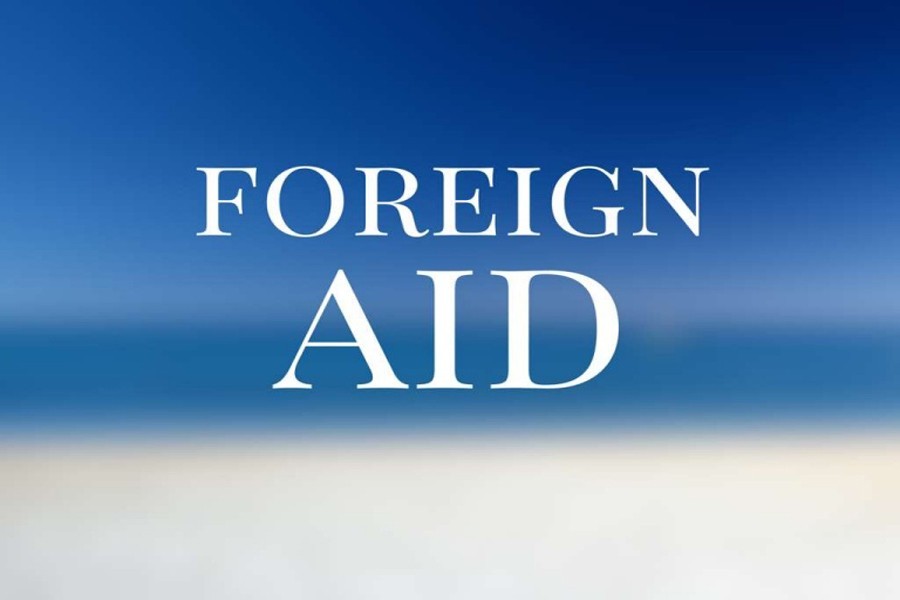Bangladesh's foreign aid taking is becoming pricier, as three key donors have enhanced their interest rates and service charges from this fiscal year (FY), 2018-19, officials said on Wednesday.
 In the wake of the country's graduation to a Lower Middle-Income Country (LMIC) and the expected graduation to a non-LDC (Least Developed Country) nation, the development partners have made the terms and conditions for their lending harder, they also said.
In the wake of the country's graduation to a Lower Middle-Income Country (LMIC) and the expected graduation to a non-LDC (Least Developed Country) nation, the development partners have made the terms and conditions for their lending harder, they also said.
Bangladesh's largest multi-lateral donor - the World Bank (WB) - has already enhanced its loan interest rate to 2.0 per cent from the previous rate of 0.75 per cent.
Besides, its repayment conditions have also become harder, as the grace period has been lowered to six years instead of the previous 10 years, and the maturity period to 36 years from 40 years.
The new rate has come into effect from July, the first month of the current FY.
Besides, WB has also started providing hard-term loans from its costly window - Scale-Up Facility (SUF).
An official of the Economic Relations Division (ERD) said the interest rate of the loans from the SUF would be 2.85 per cent.
In addition, WB will charge 0.25 per cent commitment fee and 0.25 per cent front-end fee for the loans.
The repayment period of the loans would be 30 years with a nine-year grace period, he added.
Bangladesh's largest bilateral development partner - the Japan International Cooperation Agency (JICA) - has also increased its loan interest rate to 1.0 per cent with effect from FY 19 from the long-charged rate of 0.01 per cent.
The repayment period has also been reduced to 30 years from the previous 40 years, the officials further said.
Japan has started charging 1.0 per cent interest against the funds provided as its Official Development Assistance (ODA) from October 16, 2017.
In addition, the Japanese donor agency is charging front-end fee and insurance premium for its loans, making the funds costlier, said an ERD official.
In addition, the country's largest bilateral donor also informed the government that it would review the loan interest rate after every six months, the official added.
The second largest multi-lateral development partner - the Asian Development Bank (ADB) - has also raised its loan interest rate along with changing the lending method.
Most of the loans that ADB provides to Bangladesh are offered from its hard window - Ordinary Capital Resources (OCR).
OCR loan is a LIBOR (London Inter-Bank Offered Rate)-based loan, which carries a more than 2.0 per cent interest rate at this moment. The loan is open market-based.
"Since Bangladesh graduated into an LMIC in 2015 and it is going to be a non-LDC nation, the country's key development partners are raising the service charges for their assistance," said an ERD additional secretary.
For ensuring the country's economic progress, Bangladesh would have to take loans at higher rates than in the past, he told the FE.
ERD Secretary Kazi Shofiqul Azam said Bangladesh is financially strong enough to repay the loans, taken at higher rates than in the past.
The country's capacity to repay the loans has already been proved, as its borrowing is still much lower than the standard in terms of Gross Domestic Product (GDP).
Professor of Economics Dr M A Taslim said Bangladesh's aggressive borrowing has been growing over the last few years, as the costly loans from the bilateral and multi-lateral donors have been increasing day by day.
"I don't know whether the government and the private sector are borrowing foreign money cautiously or not. I think the higher borrowing along with harder repayment conditions will put pressure on our economy."
"The local currency has already depreciated by nearly 4.0 per cent against the US dollar in one year. The higher loan repayment in the near future will affect the economy further," he told the FE.


